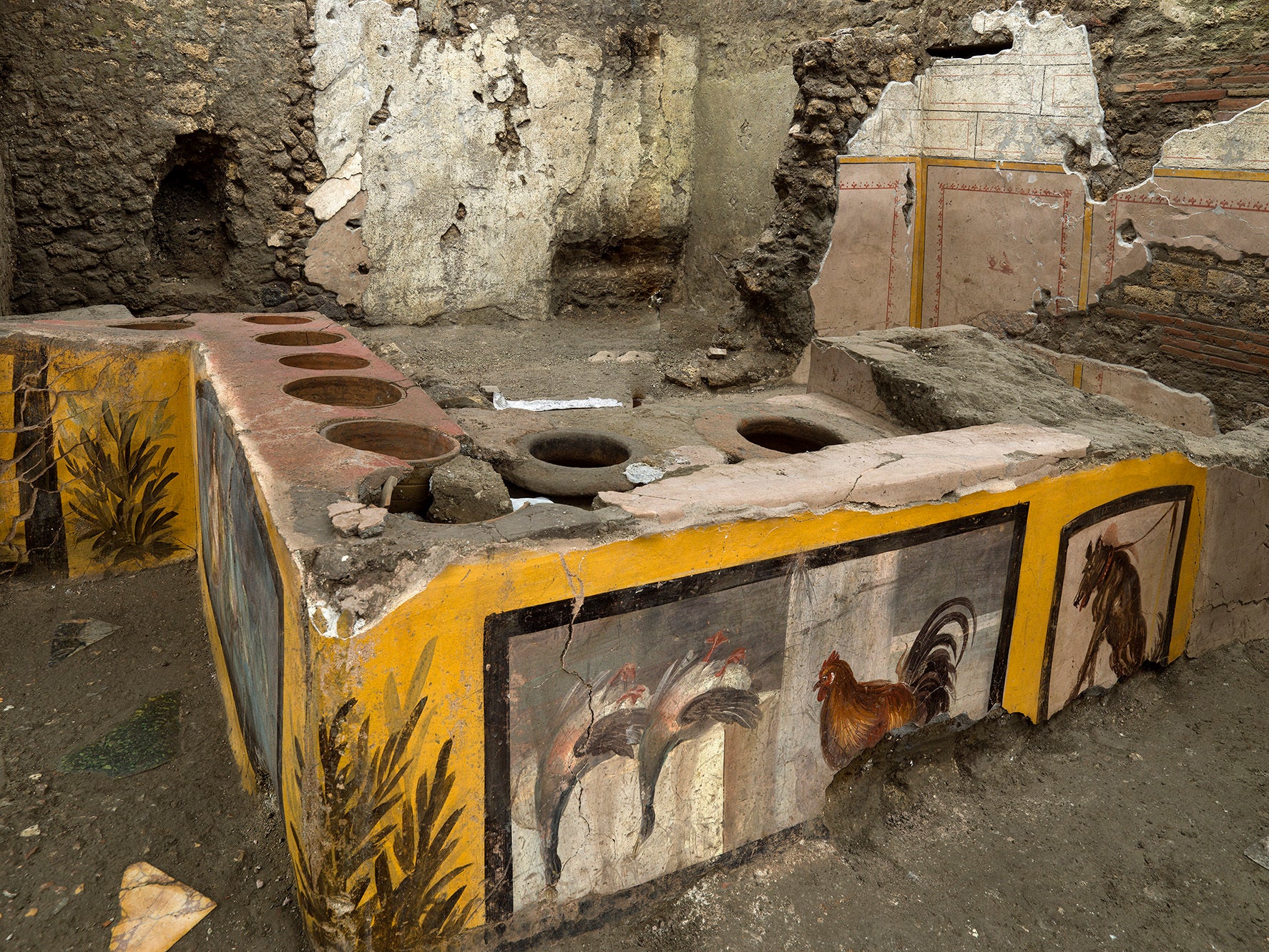Pompeii excavation reveals fast food diet of ancient Romans
Entire eatery, known as a thermopolium, unearthed

Your support helps us to tell the story
From reproductive rights to climate change to Big Tech, The Independent is on the ground when the story is developing. Whether it's investigating the financials of Elon Musk's pro-Trump PAC or producing our latest documentary, 'The A Word', which shines a light on the American women fighting for reproductive rights, we know how important it is to parse out the facts from the messaging.
At such a critical moment in US history, we need reporters on the ground. Your donation allows us to keep sending journalists to speak to both sides of the story.
The Independent is trusted by Americans across the entire political spectrum. And unlike many other quality news outlets, we choose not to lock Americans out of our reporting and analysis with paywalls. We believe quality journalism should be available to everyone, paid for by those who can afford it.
Your support makes all the difference.The remnants of a fast food eatery have been uncovered in Pompeii, giving archaeologists a glimpse into what some of the most popular takeaway dishes were for residents of the ancient Roman city.
According to Pompeii Archaeological Park’s longtime chief, Massimo Osanna, as many as 80 fast foods have been found at the site, suggesting that takeaway culture was a big part of daily life there.
This was the first time, however, that an actual eatery, known as a thermopolium, had been uncovered at the site, he told Rai state TV, according to the Associated Press.
Part of the ancient fast food counter had been dug up in 2019 during restoration efforts.
Archaeologists kept digging and and eventually uncovered a multi-sided counter, with spaces for deep vessels of hot foods, much like you would have a modern-day takeaway stand.
Read more: Ancient images of gladiators unearthed at city of Pompeii
A fresco on the countertop has also provided some insights into how the fast foods were advertised, with images of two upside-down mallards and a rooster painted in Pompeiian red, being featured at the takeaway stand.
The art also includes a figure of an undersea nymph riding a horse.
Meanwhile, another fresco depicts a dog on a leash, while vulgar graffiti was also said to be inscribed on the painting’s frame.
Some of the paintings, Valeria Amoretti, a Pompeii staff anthropologist, said in a statement, “represent, at least in part, the foods and beverages effectively sold inside”.
Duck bone fragments had been found in a container at the site, while the remains of goats, pigs, fish and snails were also found, she said, according to AP.
Ground fava beans were also found at the bottom of a wine container, with the beans being added to wine in ancient times to add to the flavour and lighten the colour of the drink.
The remnants of fast food, Mr Osanna said, provide more of a picture of what was “popular with the common folk”, with street food venues less likely to be visited by the Roman elite.
Archaeologists also uncovered human remains near the site, as well as the full skeleton of a small adult dog, marking a rare discovery that researchers said attests to the selective breeding of dogs in ancient times.
The site, along with the rest of Pompeii, would have been destroyed in the eruption of Mount Vesuvius in 79 AD.
The volcanic eruption saw the ancient city buried under a blanket of volcanic ash, preserving much of it as a time capsule of ancient life.
Now, Mr Osanna said, “we know what they were eating that day".

Join our commenting forum
Join thought-provoking conversations, follow other Independent readers and see their replies
Comments